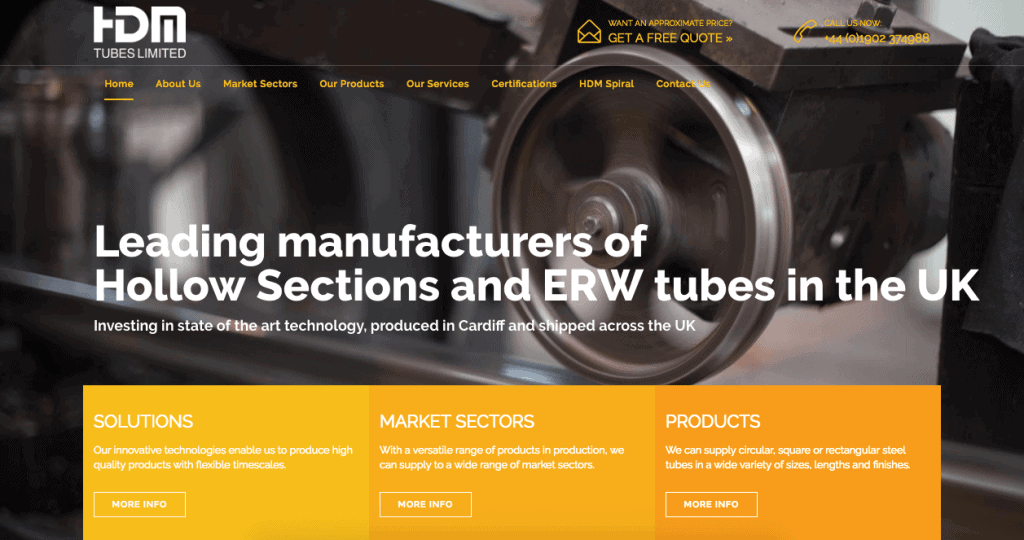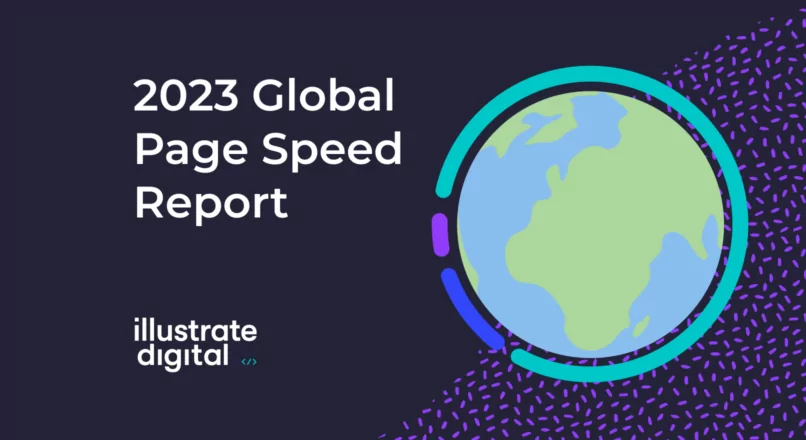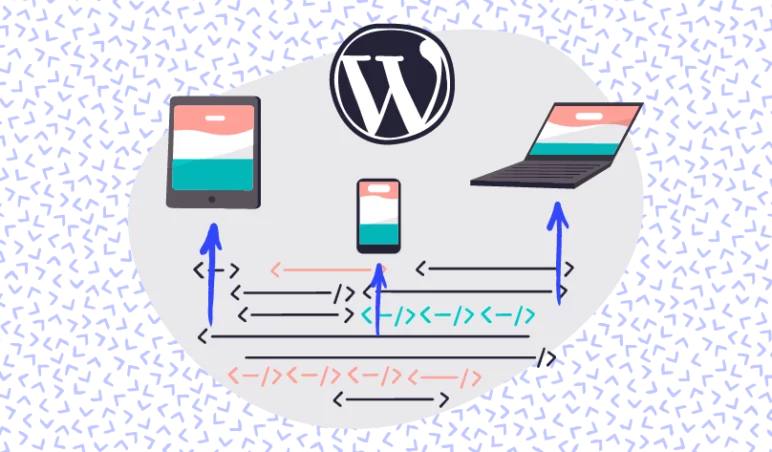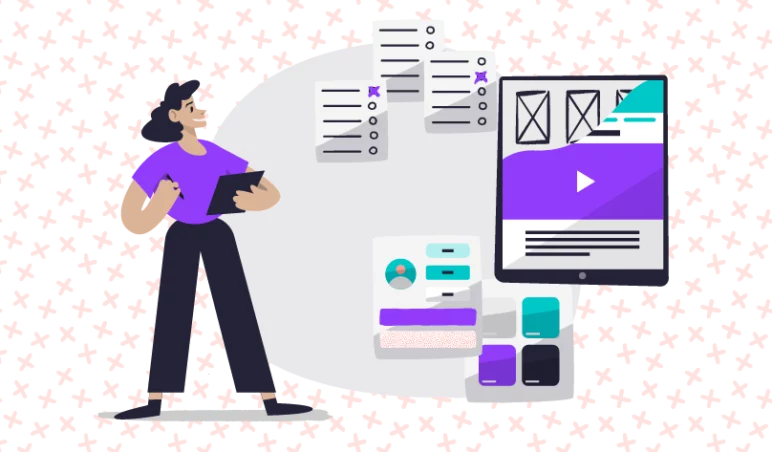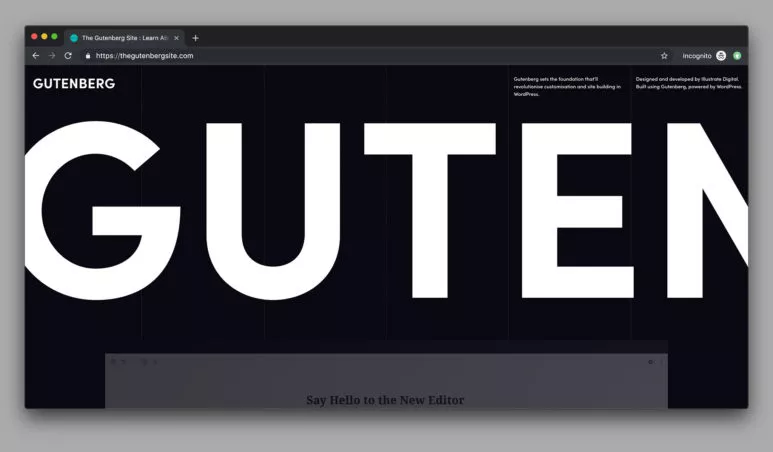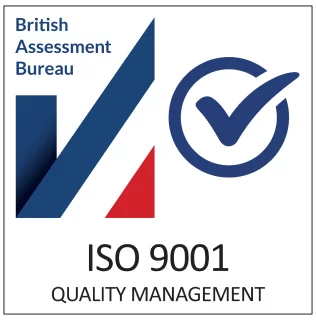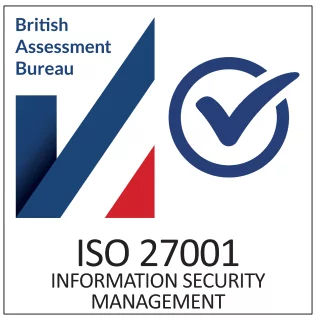Since working here at Illustrate, I love hearing the question ‘So what is it that you do?’. It gives me a great opportunity to share what a WordPress Specialist does, and to get across how passionate we are as a web design agency, about being the best in our field.
We have an ethos here when talking about what we do, to make it as clear and understandable as possible. When you buy a new car, unless you’re an enthusiast, you don’t want the salesman to be talking about hydrocarbons and alternators – you want terms you can understand. That’s exactly how we approach talking with our new and existing clients.
Like any industry though, there are a whole host of jargon terms that we use on a day-to-day basis as a WordPress Agency. Below, I have put together an A-Z guide of just some of these terms. Some you may know already, some you may not. Hopefully there’s something helpful there for everyone!
Above the fold
This term actually comes from the newspaper industry, where the space on the top half of the front page is far more valuable than the space below it. On the web, content that is visible without scrolling down is referred to as above the fold, and is the space in which you should be looking to engage your audience and get across the most important information. For example, you can see with the homepage of HDM Tubes, that we concentrated the most eye-catching and important information above the fold.
Back End
This refers to anything going on “behind the scenes” of a website, such as uploading new content and keeping it performing as it should. Think of your car; you like to keep it clean and look nice on the outside, but if it started performing badly, you’d take it to a mechanic and get them to look under the bonnet and make changes. Likewise, if you wanted new components fitting to upgrade performance, you’d get these done internally, by a professional.
That’s what we do with the sites we build and with clients that come to us for website maintenance. We work daily in the backend of sites, and we’re really comfortable with what we’re doing there.
Uploading new products for e-commerce sites, adding new blog posts, or even building sites from a blank canvas – these are just a few of the things we do in the back end.
Cache
The cache is a segment of your computer’s memory, used to store information downloaded from the internet. This means that parts of the site can be retrieved from the cache and don’t need to be downloaded each time. For example, background graphics and company logos that appear on each web page are downloaded once to the cache then retrieved each time from there. This means the site can run much faster.
DNS
DNS stands for Domain Name Server. It basically translates between IP addresses that people have difficulty remembering, and domain names which are much easier to recall. For example, a DNS translates the IP address of 72.21.211.176 to www.amazon.com.
E-Commerce
As you would expect, this is just short for ‘Electronic Commerce’ – online shops. At Illustrate we’ve been really lucky to have worked with some great businesses in developing their ecommerce presence. Check out charlotteexpresspackaging.co.uk for a practical example of one of our most recent ecommerce sites.
Front End
The part of a webpage that people visiting the site in a browser see. Essentially the “website” part of a website. This is the designer’s playground, and where we work with you in order to get across your business identity through colour, layout, and content.[/vc_column_text][vc_row_inner][vc_column_inner width=”1/2″][vc_column_text]
GIF
GIF stands for Graphic Interchange Format. They’re a bit 90s, and it’s highly unlikely we’d ever use them for a client’s site. That’s not to say we don’t enjoy them from time to time though – I mean, who couldn’t love this?[/vc_column_text][/vc_column_inner][vc_column_inner width=”1/2″][vc_single_image image=”7827″ img_size=”full” alignment=”center”][/vc_column_inner][/vc_row_inner][vc_column_text]
Hosting
Without hosting, people across the world wouldn’t be able to see your website. It’s quite literal actually… It’s simply a server (which is a computer setup specifically for websites) ‘hosting’ your website, storing its information ready to be shown to one of your viewers.
When someone, somewhere in the world, asks their computer to show your website, the server kicks in and sends your website’s data to them.
At Illustrate we trust our web hosting to WP Engine, who offer the world’s best hosting for WordPress. They look after our server to make sure it’s really well optimised and also very secure, making sure your WordPress website runs as quickly as possible.
IP
IP stands for ‘Internet Protocol’, and is essentially an electronic serial number. Every computer, mobile phone, basically any device that accesses the internet, is assigned at least one IP address for tracking purposes. Wherever you browse, whenever you send an email or instant message, and whenever you download a file, your IP address acts like a kind of licence plate to enforce accountability and traceability.
Java/Javascript
Not referring to coffee (although we do get through an awful lot of that). Java is a programming language designed to be able to run on different operating systems. Your web browser for example is able to run Java programs regardless of whether you are using Windows, Mac or Linux. With Java and it’s ‘child languages’ (such as Javascript), you can create websites with better graphic effects as well as providing a very high level of interactivity.
Keywords
A keyword is a word or series of words that potential customers will enter into a search engine to find your products or services. In looking after the technical side of your website’s SEO, we spend time making sure your keywords get the best traffic for your sector and we target those keywords while building the site, in order to achieve higher search rankings for your business.
Lorem Ipsum
Lorem Ipsum, also sometimes referred to as ‘dummy text’ is the industry standard for design mockups and helps the team to visualise how a page will look once text is added in. Often, we will build a page and fill the text areas with Lorem Ipsum, ready for it to be replaced at a later date with the actual intended copy.
Mobile Optimised
With the increased popularity and functionality of mobile devices, more and more people use the internet through their phones or tablets. This means that web agencies have had to catch up in recent years and ensure that the sites they build are ‘Mobile Optimised’, i.e. they still look good and function as well on a mobile or tablet as they would on a computer. WordPress has some great built in functionality for this, but our developers also use their expertise to ensure that any new sites we build run as smoothly as possible on all devices.
Navigation
Again, quite a simple one – navigation is how a user ‘travels’ around your site. This can be through areas such as the main menu, linked text, interactive sliders or by building a ‘Call to Action’. See ibrolly.co.uk below. We incorporated a bold slider into the header of the site to capture attention and encourage users to click straight away; just one example of how navigation can be implemented.
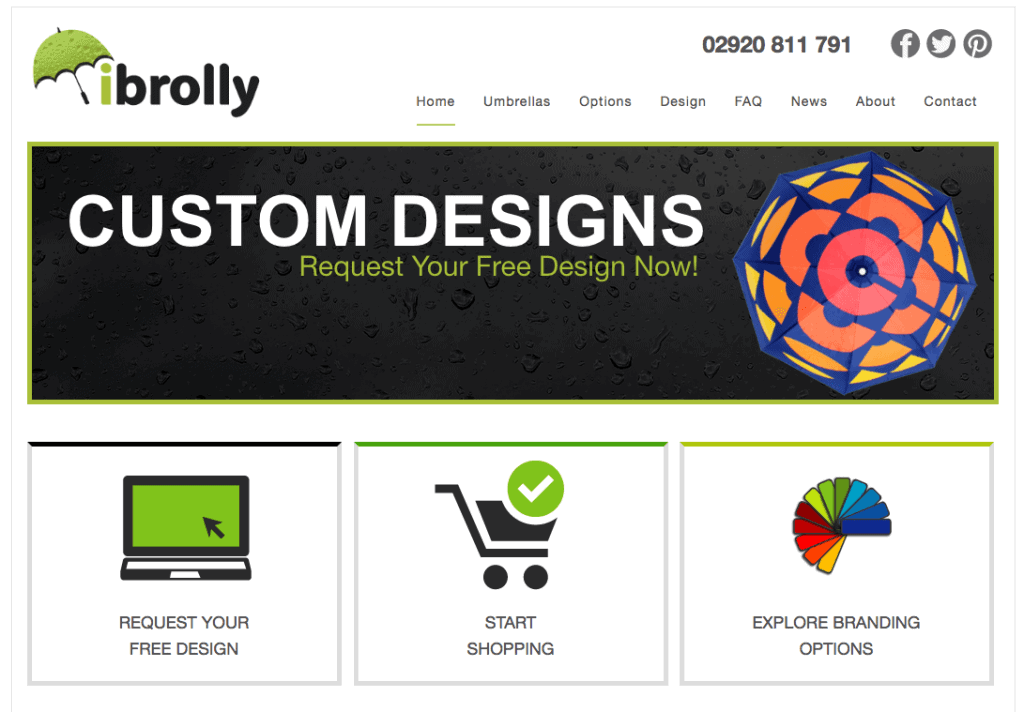
Open Source
Open source refers to the source code of a computer program being made available to the general public. It includes both web-based and desktop applications which are generally free or very low cost and are developed by teams of people, usually comprised of volunteers. The fact that WordPress is Open Source software is a huge contributor to it’s success as the market leader in content management, and also why we love it so much. The WordPress community is just that – a community. A community of like-minded individuals coming together to share ideas and knowledge in order to develop this amazing web platform.
Plugins
A plugin is a bit of third party code that extends the functionality of a website without having to redo the core coding of the site. We’ll never bloat a site with plugins; too many plugins make sites sluggish and where we can, we’ll write custom code instead of relying on a plugin. Having said that, there are a number of plugins that we love, and you can read about a couple of them a little further below.
Quality
An important part of any business is the concept of quality control. Being a successful web agency means that we have to be passionate and caring in our craft. In such a highly competitive market, the need to maintain a set of standards, do what’s in the clients’ best interests and ensure what we produce meets requirements is vital. Whenever we build a website, we have a whole set of checklists and requirements that it needs to meet before the project is given the final ‘all clear’. We also believe it’s important to continue to evolve and refine our processes, and it’s this that has built us a solid reputation as quality WordPress Specialists in Cardiff.
Responsive
Responsive web design enables a website to respond and adjust for mobile, tablet and laptop screen size. The website images, text, navigation and layout all adjust for best viewing and interaction on each specific platform. Every site we build here at Illustrate is built to be responsive, as we recognise how important this is in today’s technology.
SEO
Search Engine Optimisation is the process of optimising your website for search engines such as Google. SEO techniques make it easy for search engines to find a website and identify its contents, such as images, text, blog posts and individual web pages. The more SEO optimised the website and its content, the higher a website should rank in Google’s results.
Top Level Domain
This is basically that last bit of your web address after the dot; .com, .net, .org … there are a lot of them.
It’s important to consider what type of TLD would best fit for your business. For example, if you run a company selling goods or services online, you’d probably want to go for a .co.uk or .com, rather than a .org for example. On the flip side, a charity might want to go for a .org over a .com for the same reasons.
Usability
Usability refers to how easy it is for a visitor to your site to use it in its intended way. In other words, are the navigation, content, images, and any interactive elements easy to use? Are they functioning the way they were intended, and are you sure your intended target visitor will not need any special training in order to use your site? These are all questions we check over when building new sites as we want your website to be a window into what your business does, and for you to succeed through that. No one wants dirty Windows (sorry) windows.
Visual Composer
Visual Composer is awesome. Built by WPBakery, Visual Composer is a WordPress plugin that allows for basic users to easily add content to the backend of their site, as well as opening up expert capabilities for us, such as custom coding and layout changes. It’s great for an agency like ours because in certain situations we can build a site as normal and then all it takes is a quick tutorial to the client in how to add content, meaning they can take full control of how their content is managed going forward.
WordPress
 This is our favourite thing ever! WordPress is a website creation tool that helps us to create incredible websites. It’s the easiest and most widely used content management system (CMS) on the planet.
This is our favourite thing ever! WordPress is a website creation tool that helps us to create incredible websites. It’s the easiest and most widely used content management system (CMS) on the planet.
It’s our thing, it’s what we do, we are WordPress developers and don’t work with any other tool for creating websites.
Thousands of developers in the UK and across the world use this software. In fact it powers over 75 million websites!
Surprisingly, we are still one of very few web development agencies in the UK who concentrate on WordPress 100%. In fact we’re the only WordPress specialist in Cardiff and South Wales.
You can read more about the difference between a WordPress developer and WordPress specialist here.
Or read about why we love WordPress here.
XML
XML is a file format designed to create files that are easy to share and understand. A good example of this file type in practice is in an XML Sitemap. This file lists all your web pages, making it easier for Google to crawl your website. The XML sitemap enables you to suggest how often your website should be crawled for new content and updates.
Yoast
Another of our favourite plugins, Yoast is great for boosting SEO. Similar to Visual Composer in terms of it’s joint basic and expert capabilities, Yoast uses a traffic lighting system in order to show in real time how well your content is marked-up in relation to the keywords you’re wanting to target. You can read more about Yoast here.
Z…
Despite thinking long and hard, I couldn’t think of anything for Z…
So here’s one of my favourite clips from Zoolander.[/vc_column_text][vc_video link=”https://www.youtube.com/watch?v=Wv_JTjYYaQI”]

